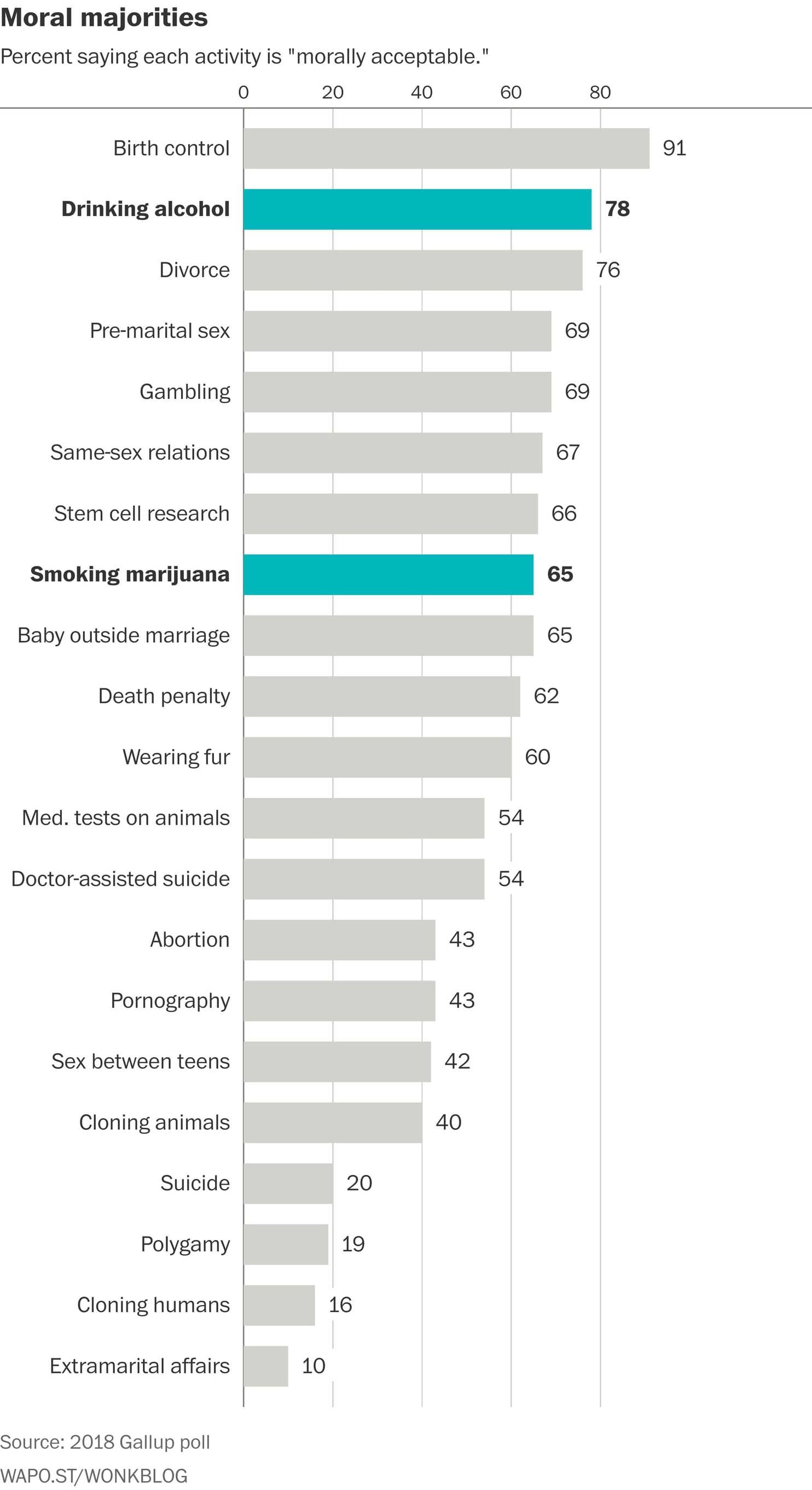Nearly two-thirds of Americans say that smoking marijuana is "morally acceptable," while 31 percent disapprove of pot on moral grounds, according to a new survey released earlier this month by Gallup.
That's a sharp jump from 2013, when a similarly worded question in a Public Religion Research Institute survey found that slightly fewer than half of Americans said it was morally acceptable to smoke marijuana.
The shift in moral acceptance of marijuana mirrors the shift in support for legalization over that time period, which rose from 48 percent at the end of 2012 to 64 percent last fall, according to Gallup.
On the spectrum of morality, Americans now rate marijuana use similarly to gay and lesbian relations, stem cell research, and having a baby outside marriage, according to Gallup. It's seen as significantly more acceptable than medical testing on animals, abortion and pornography.
But it's viewed as less acceptable than alcohol use, which 78 percent of respondents say is morally acceptable.
The gap in the acceptance of marijuana and alcohol is driven almost entirely by conservatives, the Gallup data shows.

Marijuana and alcohol use is viewed as morally acceptable by large majorities of self-described liberals and moderates - who together constitute about 61 percent of the adult population. Among conservatives, however, 75 percent say drinking is acceptable, while 47 percent say the same of marijuana use.
While marijuana legalization has garnered majority support from Democratic voters since at least 2010, many leading Democratic politicians have been slow to embrace the issue. But there are signs that's starting to change.
Earlier this year, Senate Minority Leader Charles E. Schumer (D-NY) announced his plan to introduce a bill in the Senate that would decriminalize marijuana use at the federal level.
The Marijuana Justice Act, another Senate bill that would legalize marijuana nationwide and penalize states that refuse to do so, has attracted a number of leading Democrats as sponsors, including Senators Cory Booker (NJ), Kirsten Gillibrand (NY) and Kamala D. Harris (Calif), as well as Senator Bernie Sanders (I-Vt).
The next big tests of voters' willingness to change marijuana laws will come in November, when Michigan voters will decide whether to legalize the drug and voters in Utah and Missouri will consider medical-marijuana measures.
2018 © The Washington Post
This article was originally published by The Washington Post.
